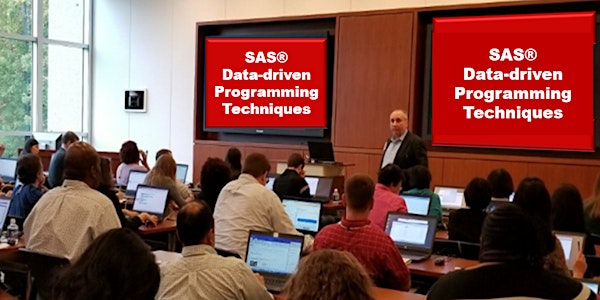Data-driven programming is a popular programming paradigm where the data, or data structures, control the flow of a program. Data-driven programming techniques can be applied to structured and unstructured data for filtering, aggregating, transforming, and calling other programs. Topics include using SAS® programming techniques to access NLEVELS (for By-group content); accessing SAS Dictionary tables (or SASHELP Views) content; determining the names of the tables available with a libref, if a dataset is empty, the number of observations in any dataset, the names and number of character versus numeric variables that exist in any dataset, and identifying variable attributes; using the SQL-macro interface to create single-value and value-list macro variables; using DATA step CALL EXECUTE statements; using metadata as input into a SAS code generator or a SAS macro to produce the desired results; applying specific DICTIONARY table and SASHELP view content in examples related to the creation of dynamic code; constructing an external control file to define relationships; using PROC FORMAT with the CNTLIN= option; and using iterative programming constructs and processes with PROC SQL and the Macro language to dynamically create data-driven programs.
Intended Audience: All SAS users
Prerequisites: SAS Essentials course or 6-months SAS software experience.
Delivery Method: Instructor-led with code examples
Date and Time: Thursday, May 16, 2024, 1:00pm - 4:30pm CDT
Course Length: 3.5-Hours
Course Material: e-Course Notes (PDF format) and code are provided to Attendees.



